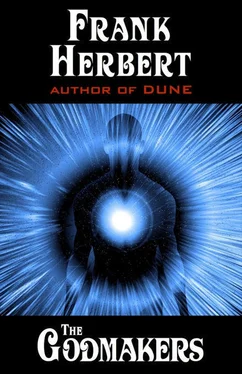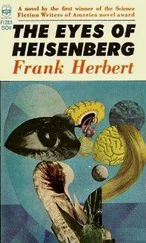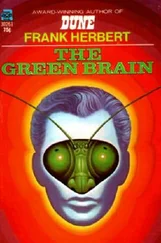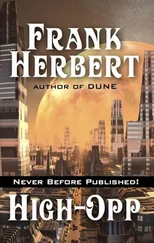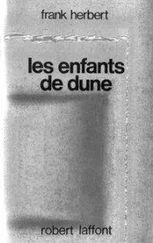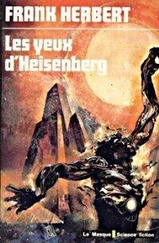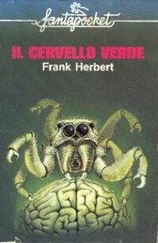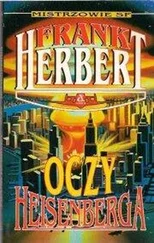Frank Herbert

You must understand that peace is an internal matter. It has to be a self-discipline for an individual or for an entire civilization. It must come from within. If you set up an outside power to enforce peace, this outside power will grow stronger and stronger. It has no alternative. The inevitable outcome will be an explosion, cataclysmic and chaotic. That is the way of our universe. When you create paired opposites, one will overwhelm the other unless they are in delicate balance.
—The writings of DIANA BULLONE
To become a god, a living creature must transcend the physical. The three steps of this transcendent path are known. First, he must come upon the awareness of secret aggression. Second, he must come upon the discernment of purpose within the animal shape. Third, he must experience death.
When this is done, the nascent god must find his own rebirth in a unique ordeal by which he discovers the one who summoned him.
—“The Making of a God,”
The Amel Handbook
Lewis Orne could not remember a time when he had been free of a peculiar, repetitive dream, when he had been able to go to sleep in the sure knowledge that the dream’s wild sense of reality would not clutch at his psyche. The dream began with music, this really hokey unseen choir, syrup in sound, a celestial joke. Vaporous figures would come out of the music adding a visual dimension of the same quality.
Finally, a voice would override the whole silly thing with disturbing pronouncements: “Gods are made, not born!”
Or: “To say you are neutral is another way of saying you accept the necessities of war!”
To look at him, you wouldn’t think him the kind of person to be plagued by such a dream. He was a blocky human with the thick muscles of a heavy planet native— Chargon of Gemma was his birthplace. He possessed a face reminiscent of a full-jowled bulldog and a steady gaze, which often made people uncomfortable.
Despite his peculiar dream, or perhaps because of it, Orne made regular obeisance to Amel, “the planet where all godness dwells.” Because of the dream’s pronouncements, which remained with him all through his waking life, he enlisted on the morning of his nineteenth birthday in the Rediscovery and Reeducation Service, thereby seeking to reknit the galactic empire shattered by the Rim Wars. After training him in the great Peace School on Marak, R&R set Orne down one cloudy morning on the meridian longitude, fortieth parallel, of the newly rediscovered planet of Hamal, terra type to eight decimal places, the occupants sufficiently close to the homo-S genetic drift for interbreeding with natives of the Heart Worlds. Ten Hamal weeks later, as he stood at the edge of a dusty little village in the planet’s North Central Uplands, Orne pushed the panic button of the little green signal unit in his right-hand jacket pocket. At the moment, he was intensely aware that he was the lone representative on Hamal of a service which often lost agents to “causes unknown.”
What had sent his hand thrusting for the signal unit was the sight of about thirty Hamalites continuing to stare with brooding gloom at a companion who had just executed a harmless accidental pratfall into a mound of soft fruit. No laughter, no discernible change of emotion.
Added to all the other items Orne had cataloged, the incident of the pratfall-in-the-fruit compounded Hamal’s aura of doom.
Orne sighed. It was done. He had sent a signal out into space, set a chain of events into motion, which could result in the destruction of Hamal, of himself, or both.
As he was to discover later, he had also rid himself of his repetitive dream, replacing it with a sequence of waking events which would in time make him suspect he had walked into his mysterious night world.
A religion requires numerous dichotomic relationships. It needs believers and unbelievers. It needs those who know the mysteries and those who only fear them. It needs the insider and the outsider. It needs both a god and a devil. It needs absolutes and relativity. It needs that which is formless (though in the process of forming) and that which is formed.
—Religious Engineering, “Secret Writings of Amel”
“We are about to make a god,” Abbod Halmyrach said.
He was a short, dark-skinned man in a pale-orange robe that fell to his ankles in soft folds. His face, narrow and smooth, was dominated by a long nose that hung like a precipice over a wide, thin-lipped mouth. His head was polished brown baldness. “We do not know from what creature or thing the god will be born,” the Abbod said. “It could be one of you.”
He gestured to the room full of acolytes seated on the bare floor of an austere room illuminated by the flat rays of Amel’s midmorning sun. The room was a Psi fortress buttressed by instruments and spells. It measured twenty meters to the side, three meters floor to ceiling. Eleven windows, five on one side and six on the other, looked out across the park rooftops of Amel’s central warren complex. The wall behind the Abbod and the one he faced gave the appearance of white stone laced with thin brown lines like insect tracks—one of the configurations of a Psi machine. The walls glowed with pale-white light as flat as skimmed milk.
The Abbod felt the force flowing between these two walls and experienced the anticipatory flash of guilt-fear which he knew was shared by the acolyte class. Officially, this class was called Religious Engineering, but the young acolytes persisted in their impiety. To them, this was God Making.
And they were sufficiently advanced to know the perils.
“What I say and do here has been planned and measured out with precision,” the Abbod said. “Random influence is dangerous here. That is why this room is so purposefully plain. The smallest extraordinary intrusion here could bring immeasurable differences into what we do. I say, then, that no shame attaches to any one of you who wishes at this time to leave this room and not participate in the making of a god.”
The seated acolytes stirred beneath their white robes, but no one accepted his invitation.
The Abbod experienced a small sensation of satisfaction. Thus far, things went within the range of his predictions. He said: “As we know, the danger in making a god is that we succeed. In the science of Psi, a success on the order of magnitude which we project in this room carries profound reflexive peril. We do, in fact, make a god. Having made a god, we achieve something paradoxically no longer our creation. We could well become the creation of that which we create.”
The Abbod nodded to himself, reflecting on the god creations in humankind’s history: wild, purposeful, primitive, sophisticated… but all unpredictable. No matter how made, the god went his own way. God whims were not to be taken lightly.
“The god comes anew each time out of chaos,” the Abbod said. “We do not control this; we only know how to make a god.”
He felt the dry electricity of fear building in his mouth, recognized the necessary tension growing around him. The god must come partly out of fear, but not alone from fear.
“We must stand in awe of our creation,” he said. “We must be ready to adore, to obey, to plead and supplicate.”
The acolytes knew their cue. “Adore and obey,” they murmured. Awe radiated from them.
Ah, yes , the Abbod thought: infinite possibilities and infinite peril, that is where we now stand. The fabric of our universe is woven into these moments.
Читать дальше
